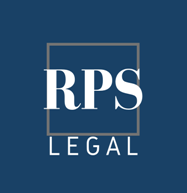The orientation year visa in the Netherlands is an important document which allows non-EU graduate citizens to search for suitable jobs according to their specializations. This is a significant procedure which applies to all graduates, no matter if they studied in the Netherlands as foreign citizens, or abroad. For those who have studied in another country, it is important to verify if the international educational institution is accepted for the purpose of this permit.
Our immigration lawyer in the Netherlands is able to offer complete and suitable information about how to apply for an orientation year Dutch permit based on the criteria that apply to students.
Our team can also provide you with all of the needed details about the available visas if you want to immigrate to the Netherlands as well as the procedure for becoming employed in the Netherlands after the orientation year.
Requirements to obtain the orientation year visa in Netherlands
The Netherlands encourages the immigration of highly skilled individuals and offers them the opportunity to explore the market or to start their own business after they have completed their studies. This is the orientation year, a period during which recent graduates from non-EU countries can come to the Netherlands and seek suitable employment according to their qualifications (or work in any type of temporary job, as they see fit).
Graduates and scientific researchers can apply for a residence permit for the “orientation year for highly educated individuals” under certain conditions:
- No other applications: the individual has no previous residence permits or work permits after he has finished his studies.
- Completed studies: in the past three years the applicant has completed an accredited programme in the Netherlands or an international educational institution abroad;
- Programme language: the master’s, post master’s or doctoral programme was in Dutch or English;
- Language test: the applicant has received a minimum score of 6.0 for the International English Language Testing System – IELTS, or a comparable score in another approved English language test.
Graduates from other countries who apply for the orientation year visa in Netherlands should note that their educational institution that issued their degree must be listed in the top 200 of the general university ranking lists. All foreign diplomas are subject to an evaluation, however, an exemption applied to those issued by accredited institutions in Flanders, Belgium.
Please keep in mind that other conditions may apply. For example, non-EU citizens who wish to apply for an orientation year visa in Netherlands will need to pass the tuberculosis test (in some cases) and provide a medical insurance available for all the Schengen countries. There is no need for a work permit in this situation.
Additional information on the orientation visa
Interested individuals can apply for the orientation year visa in Netherlands as soon as they have earned their degree. Please keep in mind that it is not advisable to commence the application and send it before you are able to provide all of the documents, however, you can do so as soon as the graduation ceremony takes place and, if needed, provide supplementary documents to your application, as needed.
For those who have studied in the country, it is important to apply for the orientation year visa in Netherlands before their student visa expires.
The orientation year permit is valid for one year and at the end of the period, the holder will need either to find employment or open a business in order to remain in the country.
The following application costs need to be observed (to be transferred into the IND bank account):
- 174 € for applicants of most nationalities;
- 68€ for Turkish citizens;
- there is no fee for citizens of Israel and San Marino.
Applicants should keep in mind that requirements for a provisional residence permit apply to citizens of some states. Our team can provide you with more details.
If you are interested in applying for an orientation year permit, you may solicit help and guidance from our consultants in Netherlands immigration. We can provide complete details about the general conditions for this permit.
How to change the orientation year Dutch permit into a new one – a procedure explained by our immigration lawyer in Netherlands
The orientation year visa in Netherlands can be changed into a highly skilled migrant permit, if the applicant conducts scientific research or finds a recognized sponsor who offers a particular position in the company, with remuneration according to his knowledge and the criteria in this matter. The IND (Immigration and Naturalization in the Netherlands) is in charge of the change of the orientation year Dutch permit into a highly skilled migrant permit. Furthermore, people who obtained such an important document can work in the Netherlands without limits.
Another alternative to becoming employed at the end of the orientation year is to open a business in the Netherlands. Entrepreneurs who wish to do so can commence the incorporation process during the orientation year. One of our Dutch immigration lawyers can provide you with more information on the conditions for starting a business and can offer adequate assistance during this proves.
Important minimum wage requirements during the orientation year in the Netherlands
Employers in the Netherlands who hire highly skilled migrants are required to observe certain minimum waged requirements. The following values for the gross per month salary apply for 2020:
- 3,381 € for highly skilled individuals under the age of 30;
- 4,612 € for highly skilled migrants of 30 years or older;
- 5,403 € for applicants with a European Blue Card;
- 2,243 € under the reduced salary criterion.
These values apply as long as the employee continues to work for the same employer. For those who switch their employers, the new employee will observe the salary that is applicable according to age. An exemption applies when the employee is included in the reduced salary criterion. In this case, the amount will remain the same even if a change of employers takes place.
The reduced salary can apply when the highly skilled migrant applied for the residence permit during the orientation year and he has never held an orientation year visa in the Netherlands. The reduction will include reimbursements and allowances in the contract, however, it will not include vacation allowances, overtime payments, or payments that are made in-kind.
Graduates have three years to apply for the orientation year permit from the date they receive their diplomas or certificates.
The orientation year can be an important opportunity to look for suitable employment and, overall start your career in the Netherlands. Furthermore, there is no requirement for the employer to apply for a work permit for the individual under this scheme. While there are some requirements for a minimum salary, employers are encouraged by the fact that during this year the reduced salary criterion is applicable.
If you have graduated and are interested in starting the orientation year, you are invited to contact our team of specialists in immigration in the Netherlands for extra information.
The orientation visa is an excellent way to get to know the Dutch campuses and the higher education institutions that are available to foreign students. Our team of immigration experts can help you throughout the application process and will also answer questions for those who wish to extend their stay. For foreigners who are already in the Netherlands, we also answer questions about Dutch citizenship.
US citizens who are interested in starting a business in the Netherlands can also reach out to us for more information about how they can benefit from the provisions of the DAFT Treaty. This special bilateral agreement between the United States and the Netherlands allows investors from one country to invest in the other, provided that they meet certain minimum business investment criteria.

